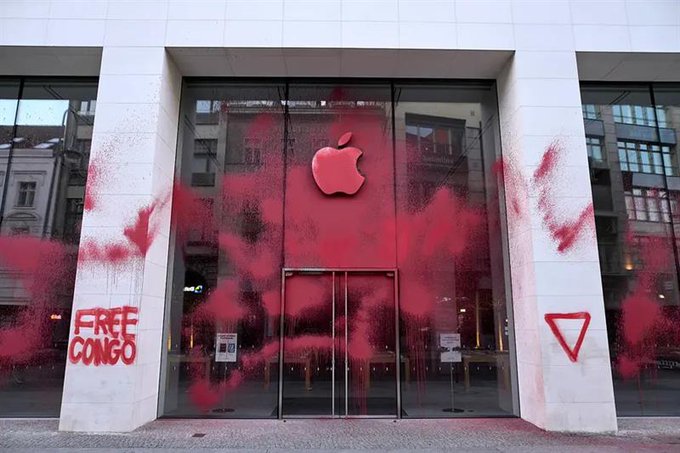Published
6 months agoon

The Democratic Republic of Congo has taken a significant step by filing a lawsuit against tech giant Apple, accusing the company of using “blood minerals” in its products. The lawsuit alleges that Apple has been purchasing minerals smuggled from the DRC into neighboring Rwanda, where they are laundered and integrated into the global supply chain.
The DRC’s lawyers claim that Apple’s products, including Macs and iPhones, are “tainted by the blood of the Congolese people” due to the company’s alleged reliance on minerals sourced from a region plagued by violence, corruption, and human rights abuses. The lawyers point out that the region has been devastated by grave human rights violations, including sexual violence, armed attacks, and widespread corruption at mining sites.
Apple has responded to the allegations, citing its 2023 annual corporate report, which states that the company found no reasonable basis to conclude that any of its suppliers or refiners in the DRC or neighboring countries directly or indirectly financed or benefited armed groups. However, the DRC’s lawyers argue that Apple’s efforts to ethically source its minerals are “notoriously insufficient” and that the company relies too heavily on certification from the Tin Supply Chain Initiative (ITSCI), which has been shown to have numerous shortcomings.
The lawsuit is part of a broader effort by the DRC to hold companies accountable for their role in the exploitation of the country’s mineral resources. The case has significant implications for the tech industry, which relies heavily on minerals such as tantalum, tin, tungsten, and gold to produce smartphones and other electronic devices.
As the lawsuit moves forward, it will be important to watch how Apple and other companies respond to allegations of using “blood minerals” in their products. The case has the potential to shed light on the complex and often murky world of mineral sourcing and to hold companies accountable for their role in perpetuating human rights abuses.


























